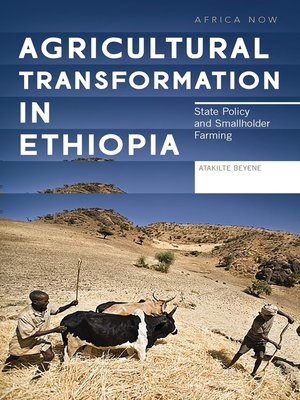Agricultural Transformation in Ethiopia
ebook ∣ State Policy and Smallholder Farming · Africa Now
By Atakilte Beyene

Sign up to save your library
With an OverDrive account, you can save your favorite libraries for at-a-glance information about availability. Find out more about OverDrive accounts.
Find this title in Libby, the library reading app by OverDrive.



Search for a digital library with this title
Title found at these libraries:
| Library Name | Distance |
|---|---|
| Loading... |
For thousands of years, Ethiopia has depended on its smallholding farmers to provide the bulk of its food needs. But now, such farmers find themselves under threat from environmental degradation, climate change and declining productivity. As a result, smallholder agriculture has increasingly become subsistence-oriented, with many of these farmers trapped in a cycle of poverty. Smallholders have long been marginalised by mainstream development policies, and only more recently has their crucial importance been recognised for addressing rural poverty through agricultural reform.
This collection, written by leading Ethiopian scholars, explores the scope and impact of Ethiopia's policy reforms over the past two decades on the smallholder sector. Focusing on the Lake Tana basin in northwestern Ethiopia, an area with untapped potential for growth, the contributors argue that any effective policy will need to go beyond agriculture to consider the role of health, nutrition and local food customs, as well as including increased safeguards for smallholder's land rights. They in turn show that smallholders represent a vitally overlooked component of development strategy, not only in Ethiopia but across the global South.
This collection, written by leading Ethiopian scholars, explores the scope and impact of Ethiopia's policy reforms over the past two decades on the smallholder sector. Focusing on the Lake Tana basin in northwestern Ethiopia, an area with untapped potential for growth, the contributors argue that any effective policy will need to go beyond agriculture to consider the role of health, nutrition and local food customs, as well as including increased safeguards for smallholder's land rights. They in turn show that smallholders represent a vitally overlooked component of development strategy, not only in Ethiopia but across the global South.







